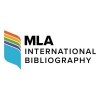Research Article
Translation
Issue Editorial Board

Aim & Scope
Studies on Turkish Language and Literature in the Balkans (BALTED) aims to present academic studies on Turkish language and literature in the Balkans for the evaluation of academicians of the relevant field and to meet the publications in question to meet the academic periodical needs in the field. In line with this main purpose, we can summarize the medium and long term goals of the journal in the following articles:
Balkan Turks (Bulgaria, Kosovo, Macedonia, Montenegro, Gagauzia, Romania, Serbia, Western Thrace etc.) and Bosnia Herzegovina, Albania etc. studies on Turkish language and literature activities of communities in other regions are in the review and evaluation field of the journal. Osmanlı öncesi, Osmanlı dönemi ve Osmanlı sonrası sürecinde Balkan topraklarının kendi dillerinden Türk dili ve onun ürün sahası Türk edebiyatı çalışmaları dergide yer alacak çalışmaların kapsam alanındadır. Turkish language as an autochthonous language of the Balkans and its product area Turkish literature studies developing before the Ottoman, Ottoman and Post-Ottoman are within the scope of the studies that will be included in the journal. These literary works are Folk literature can be in the field of Classical Literature and Contemporary Literature.
Unlike Turkish literatures in other parts of the Turkic World, Balkan Turks and literatures lack a certain state and academia support. Which is rich in historical and cultural ties with the Balkans at this point has assumed an important role in Turkey. The increase in the researches especially about Balkan Turks in recent years; it requires these studies to be carried out at a certain academic level and in a scientific framework. BALTED (Studies on Turkish Language and Literature in the Balkans) operates in the field of Turkish language activities and literary productions of Balkan Turks. BALTED is a refereed, scientific publication, which was established to support the studies in this field and to gain a scientific quality.
Author Guidelines
Ethical Principles and Publication Policy
ETHICAL PRİNCİPLES
Authors, editorial board and referees involved in the publishing process should make decisions in accordance with ethical principles. Turkish Language and Literature Studies in the Balkans has set standards that all parties expect to comply in order to guarantee ethical principles. As a publisher, Turkish Language and Literature Studies in the Balkans takes its task very seriously at all stages of publishing and accepts all its responsibilities, including ethics.
Author Policies:
Turkish Language and Literature Studies in the Balkans does not request a signed application letter from all authors of an article and does not make applications that give orders to the authors. Authors applying to the journal for publication are expected to voluntarily comply with the ethical principles determined by the Publication Ethics Committee (COPE). Plagiarism, forgery, duplicate publication, bragging, data production etc. are prohibited in Turkish Language and Literature Studies in the Balkans.
1) Authors should not cause physical and legal harm to the participants of the research. They should not engage in any form of psychological abuse and should guarantee privacy and any form of anonymity to those participating in their research.
2) Authors must confirm that the works submitted to the journal are original.
3) Authors must confirm that their works have not been published before and that they have not submitted them for evaluation for publication elsewhere after applying to the Turkish Language and Literature Research in the Balkans.
4) Authors should define and indicate the sponsorship and support of people, institutions or organizations that support their work.
5) Authors should include all sources used in the formation of their manuscripts in their bibliography.
6) Authors must confirm that they do not hide or change any information, document or evidence in their works submitted to the journal.
7) Authors should report any interest (conflict, interest) about their works to Turkish Language and Literature Studies in the Balkans.
8) The author, who realizes that there is an important mistake or problem in his work in the process of evaluation or publication, must immediately notify the editor of the journal and cooperate with the editor for options such as retracting the article or correcting it.
Editorial Board Principles:
The editor of Turkish Language and Literature Studies in the Balkans and members of the editorial board are expected to voluntarily comply with the ethical principles determined by the Publication Ethics Committee (COPE).
1) Plagiarism control is carried out using the iThenticate program for the articles sent for publication to the Turkish Language and Literature Studies in the Balkans. Authors should strictly avoid any form of plagiarism.
2) The Editorial Board should keep the information of any article sent for publication confidential.
3) The Editorial Board is responsible for conducting the evaluation and publication process for all kinds of articles sent for publication.
4) The Editorial Board should strive to improve the publication and representation quality of Turkish Language and Literature Studies in the Balkans. In this regard, it should give importance to scientific quality, originality and journal identity.
5) The Editorial Board should make efforts to increase the level of research in the field of study and to improve the literature.
6) The Editorial Board should be diligent in responding to the needs of readers and authors.
7) The Editorial Board should be ready to issue explanations, corrections, changes in decision and apologies when necessary.
Referee Principles:
Referees of Turkish Language and Literature Studies in the Balkans are expected to voluntarily comply with the ethical principles determined by the Publication Ethics Committee (COPE).
1) The referees should keep the information of any manuscript sent for publication confidential.
2) The referees should evaluate all kinds of articles in terms of scientificity.
3) The referees should notify the Turkish Language and Literature Studies in the Balkans of any conflict of interest for a paper they are appointed.
4) Referees must submit all information to the editor for a study they are in a position to reject.
5) The referees should evaluate the articles objectively.
6) The referees should make sure that the works to be published in the Turkish Language and Literature Studies in the Balkans are original and have not been published before.
7) The referees cannot submit the studies submitted to the journal for publication elsewhere.
PUBLICATION POLICY
Turkish Language and Literature Studies in the Balkans, and BALTED, with its short name, is an international, peer-reviewed, open access scientific journal aiming to present academic studies on Turkish language and literature in the Balkan field for the evaluation of relevant field experts and to bring together other scientists working in this field and the mentioned publications. It does not charge any fees from its authors and readers.
Articles that apply for publication to the journal are checked with a plagiarism program in terms of compliance with scientific ethics at the pre-control stage. Article submission is done through the DergiPark system, and the evaluation process of the articles is completed through the "DergiPark" system, taking into account objective criteria. The candidate article is taken into preliminary evaluation within 15 days. After the preliminary evaluation, the works that do not comply with the BALTED publication principles are returned to their authors. The waiting period for the article, for which two referees are appointed after the positive preliminary evaluation, is 30 days and the extension period is 7 days. In case of a positive and a negative report in the referee evaluation, the publication decision of the candidate article is made after the evaluation of the 3rd referee and 3/2 positive majority. All responsibility for the content of the articles in the journal belongs to the authors. All publication rights of the published articles belong to Turkish Language and Literature Studies in the Balkans.
Price Policy
Studies on Turkish Language and Literature in the Balkans, and BALTED, with its short name, is an international, peer-reviewed, open access scientific journal aiming to present academic studies on Turkish language and literature in the Balkan field for the evaluation of relevant field experts and to bring together other scientists working in this field and the mentioned publications. IT DOES NOT CHARGE ANY FEES FROM İTS AUTHORS AND READERS.
Indexes
Citation Indexes
Other Indexes
Journal Boards
Editor

Editorial Board
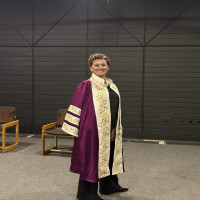
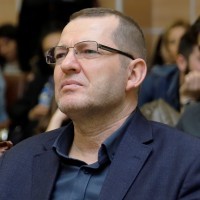
https://personel.trakya.edu.tr/ikelagaahmet
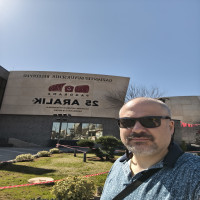
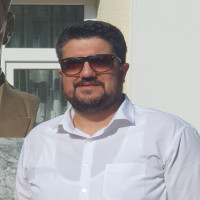
1999 yılında Şumnu Üniversitesi Rusça ve Türkçe Bölümünden mezun oldu.
2013 yılında Bulgaristan Bilimler Akademisi Etnoloji ve Halk Bilimi Enstitüsünde doktora tezini tamamladı ve 20214'te Şumen Üniversitesi Türk Dili ve Edebiyatı Bölümüne öğretim üyesi olarak atandı. 2020'de doçent unvanını aldı.
1967 Afyon-Sandıklı'da doğdum. İlk, orta ve lise öğretimimi Sandıklı'da tamamladım. 1985 yılında Ankara Üniversitesi Türk Dili ve Edebiyatı bölümünü kazandım. 1989 yılında mezun oldum. 1989-1993 yılları arası Posof Lisesi'nde, 1993-1994 Marmara Lisesi'nde, 1994-1998 Yılları arası Sandıklı Lisesi'nde Edebiyat öğretmenliği yaptım. 1998'den itibaren Afyon Kocatepe Üniversitesi'nde önce Okutman daha sonra Öğretim Görevlisi çalıştım. Ardından da Dr. Öğrt. Üyesi olarak atandım ve hala bu görevime devam edeyorum. 2001 yılında Afyon Kocatepe Üniversitesi Sosyal Bilimler Enstitüsü'nde Sandıklı ve Yöresi Ağız Özellikleri adlı tezimle yüksek lisansımı tamamladım. 2008 yılında Ege Üniversitesi / Sosyal Bilimler Enstitüsü / Türk Dünyası Araştırmaları Ana Bilim Dalı / Türk Halk Bilimi (Folklor) Bilim Dalı'nda Bulgaristan Türkleri Halk Edebiyatı Üzerinde Bir Araştırma adlı tezimi savundum ve Dr. Ünvanı aldım.

Taner GÜÇLÜTÜRK
(Biography)
Taner Güçlütürk was born on April 20, 1980, in Prizren. He completed his primary, secondary, and high school education in this city, and earned his bachelor’s and master’s degrees at the University of Pristina. In 2011, with his doctoral dissertation titled “Contemporary Turkish Literary Creativity in Kosovo Between 1951–2001”, he completed his PhD at the Department of Turkish Language and Literature, Faculty of Philology “Blaže Koneski,” Ss. Cyril and Methodius University in Skopje, obtaining the title of Doctor of Philological Sciences in the field of New Turkish Literature.
He began his career in journalism, program production, and broadcasting in 1999 with Turkish-language broadcasts at Radio Prizren, and later continued this work at the Yeni Dönem newspaper, radio, and television. In 2001, he received journalism training at a journalism school organized by the Vienna Radio and Television Corporation in Austria, and in 2006 he participated in a journalism training program held in the United States by the U.S. Department of State Education Institute. Between 1999 and 2009, he worked as a journalist, presenter, and program producer for numerous local, national, and international media organizations. In 2005, he was awarded Journalist of the Year in Kosovo by the Finnish Human Rights Kosovo Coordination Office and the Network of Human Rights Radios. He served as a member of the Kosovo Press Council between 2005 and 2006.
Between 2012 and 2016, he represented the Kosovo Turkish Community on the Advisory Council for Communities of the Presidency of Kosovo. In 2008, by decision of the Senate of the University of Pristina, he worked for five years as a lecturer in the Department of Turkish Language and Literature at the Faculty of Philology, where he taught courses such as Turkish Literatures, Literary Translation, and Fundamentals of Journalism, and conducted practical course work. After 2013, he served as a Turkish language instructor at the Kosovo Turkish Representation Office and at the Yunus Emre Institutes in Prizren and Pristina. From 2014 onward, he assumed responsibility for and production of Turkish-language broadcasts at Radio İpek.
Güçlütürk is also a research fellow at the Balkan Turkish Studies Research Center (BAL-TAM), headquartered in Prizren. He previously served as a board member of the Kosovo Turkish Journalists Association and the Kosovo Turkish Intellectuals’ Association. Since 2018, he has been the Kosovo representative and a member of İLESAM (Association of Science and Literature Works Owners of Turkey), and is also a member of the Writers Union of Turkey and the Eurasian Writers’ Union. He serves as the Chair of the Jury of the International “Süleyman Brina” Balkan Turkish Culture Service Award of the “Doğru Yol” Turkish Culture and Arts Association, and as Co-Chair of the Kosovo Turkish Writers Association.
His poems, essays, news articles, commentaries, and scholarly papers have been published in numerous journals and newspapers. In the fields of Turkology and related disciplines such as language, literature, folklore, and history, he has published more than 50 successful scholarly articles and research papers in national and international academic journals. In recent years, he has focused primarily on Contemporary Turkish Literature. His principal published works include:
Published Works
Translation: Dr. Taner Güçlütürk; Author: Jeton Kelmendi, How to Love, poetry book, Lulu Press, USA, 2011.
Taner Güçlütürk, Turkish Literary Creativity in Kosovo (1951–2001), scholarly research/doctoral thesis book, BAL-TAM Publications, Prizren, Kosovo, 2014.
Mourning Does Not Suit My Language, poetry book, Değişim Publications, Istanbul, May 2014.
Editor: Dr. Taner Güçlütürk, New Companions on the Road, a selection of young artists and talents in Kosovo’s literature, visual arts, and music, Kosovo Turkish Writers Association Publications, Prizren, 2015.
Editor and Translator: Dr. Taner Güçlütürk, Anthology of Contemporary Poetry in Kosovo, Kosovo Turkish Writers Association Publications, Prizren, 2016.
Editor: Dr. Taner Güçlütürk – Zeynel Beksaç, In the Footsteps of Verses in the Balkans, Kosovo Turkish Writers Association Publications, Prizren, 2016.
Translation: Dr. Taner Güçlütürk; Author: Nesim Ispahiu, The Taste of the Verse, poetry, March 2025, Prizren, Kosovo.
Translation: Dr. Taner Güçlütürk; Author: Nexhat Ibrahimi, Islam in Illyrian-Albanian Lands Through the Centuries, historical scholarly research, in translation, 2025, Prizren, Kosovo.
Translation: Dr. Taner Güçlütürk; Author: Vlora Ademi, Katërdhetë e pak, poetry, in translation, 2025, Prizren, Kosovo.
Translation: Dr. Taner Güçlütürk; Author: Milazim Krasniqi, Russian Roulette for Ali Pasha, drama, awaiting publication.
Translation: Dr. Taner Güçlütürk; Author: Naser Shatrolli, Garden Flowers, drama/comedy, staged at the Samsun Theatre Festival in 2024.
Books Edited and Prepared for Publication
(Here follows a list of 15 poetry, short story, and literary works edited by Güçlütürk between 2016 and 2025, published mainly by the Kosovo Turkish Writers Association in Pristina and Prizren.)
Active in civil society organizations engaged in cultural, artistic, and intellectual activities, Güçlütürk has carried out dynamic work on the current issues of his community and played an active role in preserving culture, art, national identity, and social values in the region. For these efforts, he has received numerous awards and commendations. Among them are the 1998 “Doğru Yol” Poetry Competition Award, the 2005 Journalist of the Year Award by the Finnish Human Rights Kosovo Coordination, second prize in poetry at the 2008 International Literature Competition in Obernai, France, the 2018 International Writers Association Literature Award (Brussels), the 2020 International “Süleyman Brina” Balkan Turkish Culture Service Award, the 2019 “Service to Turkology and Academic Award” by the Institute for the World of Turks (IfWT), the 2022 Prizren Municipality Writer of the Year Award, the 2022 “Best Poetry in Turkish Language” Award, the 2024 Ahmet Kabaklı Literature Medal by the Turkish Literature Foundation, and the 2025 “February 17 Independence Literature Award. In total, he has received ten national and international awards, in addition to hundreds of certificates of appreciation, plaques, and honors.
Güçlütürk has delivered numerous conferences and lectures internationally on topics ranging from Turkish journalism in the Balkans to contemporary Turkish literature, Balkan cultural identity, and Ottoman and modern literary traditions. He serves on the editorial boards of several international peer-reviewed journals in Turkology and literature in Kosovo, North Macedonia, and Turkey, and acts as a specialist in Contemporary Turkish Literature in the Balkans.
Over the past 25 years, he has represented Kosovo and the Kosovo Turkish Community at hundreds of congresses, symposiums, festivals, seminars, workshops, and conferences at local, national, and international levels. As a Turkologist, he has devoted sustained effort to preserving and advancing Turkish literature, culture, and art in the region. He has supported and mentored a new generation of Kosovo Turkish writers and poets, contributing to the preparation, publication, and promotion of their works, notably through the anthology New Companions on the Road.
In addition to literary creation, Güçlütürk has made significant contributions as a literary translator, introducing contemporary Albanian, Bosniak, Roma, and Gora literary creativity in Kosovo to Turkish readers through anthologies and translated works. His Anthology of Contemporary Poetry in Kosovo was purchased by the Kosovo Ministry of Culture in 2019 and distributed to libraries throughout the country.
Between 2014 and 2025, particularly within the framework of the Yunus Emre Institute, he successfully carried out numerous cultural and artistic projects. As Chair (2015–2016) and current Co-Chair of the Kosovo Turkish Writers Association, he has coordinated hundreds of literary and cultural events in cooperation with ministries, municipalities, embassies, cultural institutes, and civil society organizations in Kosovo, Turkey, Albania, and North Macedonia.
Currently, Güçlütürk continues his intensive research in New Turkish Literature, alongside ongoing studies in Turkology and related disciplines. His areas of interest also include Turkish–Albanian and Turkish–Bosnian translation, teaching Turkish to foreigners, history, cultural studies, folklore, history of education, and journalism.
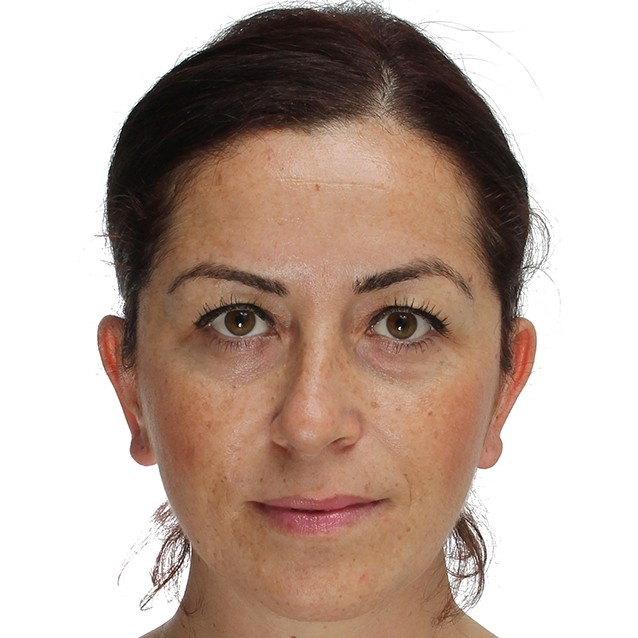

Hasan Neriman currently works at the Faculty of Letters, Universitatea Ovidius Constanţa. Hasan does research in Sociolinguistics, Philology and Interlinguistics. Their current project is the dynamics of the discourse of the competent institutions on the curricula of Turkish mother tongue and literature in pre-university classes


BALTED is licensed under a Creative Commons Attribution-NonCommercial 4.0 International License.







